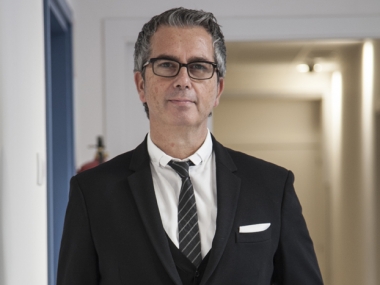Training professionals in healthcare systems
Edited on
04 August 2015Generally, a professional in the healthcare field becomes officially acknowledged as such, after a certification degree, this endorsement is done after an almost entirely academic training during the undergraduate period. What this means is that a great part of the graduated healthcare professionals do not have an experiential training, thus are not actually well prepared to do real work with patients under stressful situations, in multidisciplinary team work, or in cases requiring specific communication skills with the patient. However, all these are essential capacities in the very high complex healthcare system; these professional competences must be trained, acquired and evaluated during work in close to real contexts, transferring the learning curve to the patients.

In terms of education, when a healthcare professional incorporates real experience from the beginning of the training and education process, that is, in the undergraduate period, key professional competences combining technical and non-technical ones, are firmly assimilated, translating into a lower risk for the patients. With this new approach, these type of competences are acquired progressively and the gap between the under graduated and post graduated periods is more integrated in a continuum, with less impact.
In medical studies, academic competences are mostly based on knowledge, so they tend to be more theoretical and not very suitable to confront real situations in which challenging conditions demand experience. The type of competences that a medical and healthcare professional needs to acquire has to do with a combination of knowledge, abilities and attitudes. A good balance among all of them offered from the beginning of the healthcare professional training will help to ensure a safe and more adjusted service for the patient.
In a healthcare training system pursuing this model, all the stakeholders must be included in the process of building the curricula. Beyond University authorities, healthcare facilities, professional colleges, scientific societies and also patients and caregivers’ representatives must be included in the group of experts that contribute to create the curricula. In doing so, the healthcare professional profile will be more transversal and patient-based, consequently, creating a more efficient healthcare system.
In terms of strategy, and following some initiatives like the ones promoted by WHO, Health Education Systems should follow patient-centred curricula, particularly focused on patient safety. If healthcare strategies want to move from professionals’ centred healthcare, mainly doctors, to a patient-centred strategy, this has to be conceived from the very beginning of the healthcare training and education process.
It’s well assumed that healthcare services should be delivered on the basis of an interdisciplinary teamwork, centred on the patient and with organizational structures around the clinical process. However, training of healthcare professionals particularly in the under graduated phase, is still done in “silos”: nurses, doctors, technicians, pharmacists, etc., are rarely trained in multidisciplinary teams and close to the real work, but rather isolated and on theoretical basis. Providing safe scenarios where interdisciplinary teams are trained becomes the real challenge for the healthcare systems. Highly complex set-ups with all the stakeholders implied are extremely helpful to have a direct experience of the medical case. Learning in these conditions helps either under graduated and post graduated trainees.
Considering the above, professional knowledge can become a very relevant capital either in the private or the public sector. Capacities developed through this model affect professionals but also other health actors; innovation in the capacity building process is crucial in dealing with the changes that the healthcare system has undergone during the last decades, such as ageing, pressure, patient demanding information, moving from hospitals to home healthcare or major ambulatory surgery, and TIC influence on managing data either clinical or not clinical.
Health professional education and quality should not relate to incentives. The premise of “higher quality is related to higher feedback” is rarely implemented in healthcare systems today. Promoting training programs with patient-centred strategies and interdisciplinary teamwork incentives will make it easier to manage the patient case. Personal competition should be avoided and the expected results should be based on the patient instead of professional hierarchic organisations.
Involving all the stakeholders in this strategy is extremely needed, as well as counteracting resistance to change from different health sector lobbies. Real engagement from the quadruple helix set of Health actors: knowledge (universities, professional schools), business (healthcare providers, ICTs, etc.), health (facilities, professional colleges, scientific societies, healthcare innovation) and people (patients associations and citizens’ representatives) is absolutely mandatory if we want to move from the classical education to the 21st century model of healthcare education closer to the reality.
*Dr. Enric Macarulla is General and Digestive Surgeon and Head of Research and Department at the General Hospital of Igualada. Professor of anatomy at the Autonomous University of Barcelona, and at the Bages University Foundation. Since 2009, Dr. Macarulla has been the director of the 4D Health, the Center of Innovation for Simulation in Health. He is also 4D Cities Thematic Expert.
Submitted by 4D Cities on




